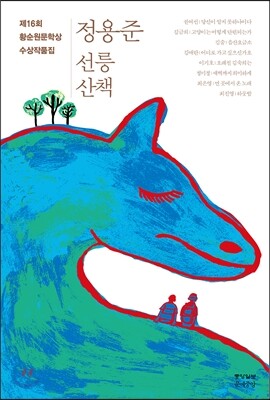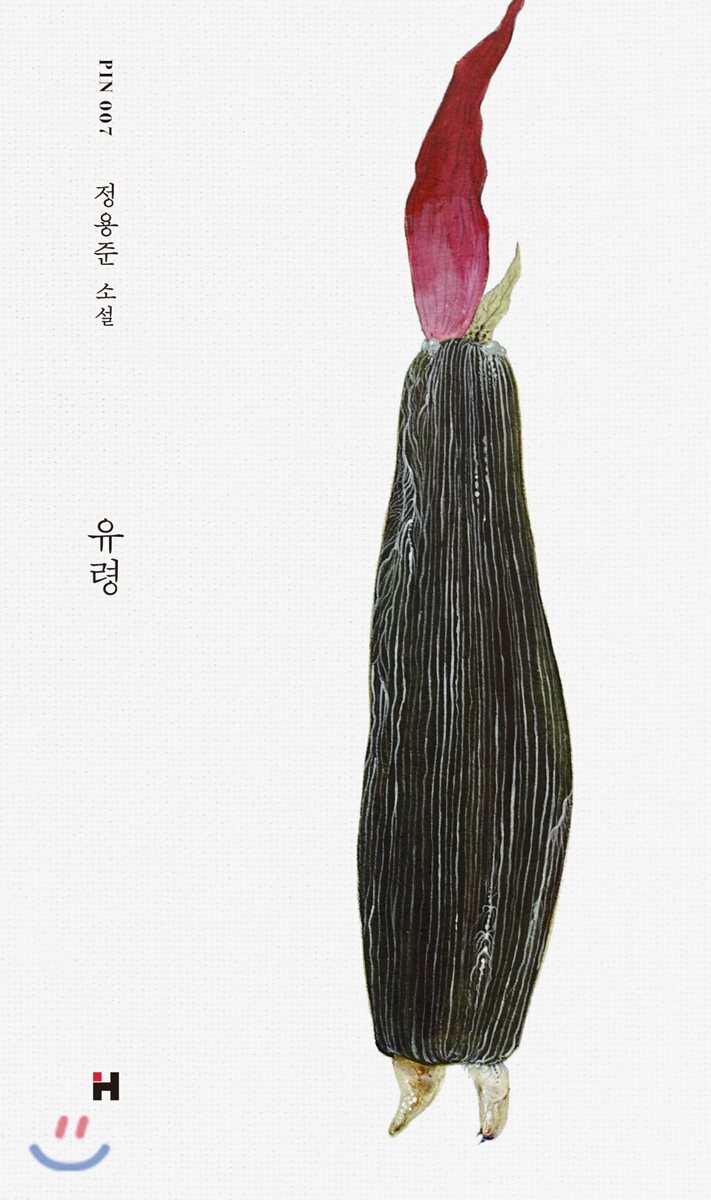작가명 : 정용준
1. 도입부 (50~100단어 내외) : 작가 간략소개
문학평론가 김형중은 정용준의 첫 소설집 『가나』의 해설에서 “정용준은 죽음충동의 에너지를 탈성화한 작가들, 즉 장용학 · 손창섭 · 남정현 · 박상륭 · 백민석 · 백가흠 · 편혜영으로 이어지는 계보에 서 있다”면서 “한국문학사를 통틀어 이토록 아름다운 죽음의 문장들을 만나게 되는 일은 쉽지 않다”고 말했다. 이 평가에 값을 하듯 정용준은 불면의 두려움과 친근함에 의지해 글을 쓰고 있다. 정용준은 2016년 단편 「선릉산책」으로 황순원문학상을 수상하였다.
2. 생애 (Life) (150~200 단어 내외)
정용준은 대한민국의 소설가이다. 1981년 광주에서 태어났다. 조선대학교 러시아어학과를 졸업하고 동 대학원에서 문예창작을 공부했다. 2009년 『현대문학』 신인상에 단편소설 「굿나잇, 오블로」가 당선되어 등단했다.
정용준은 학부 전공이었던 러시아어에 지속가능한 흥미와 호기심을 느끼지 못했고 오히려 소설에 흥미를 가지게 되었다고 한다. 정용준은 소설을 스물여섯에 처음 쓰기 시작한 이후 소설을 계속 쓰고 싶고 더 잘 쓰고 싶어서 소설을 쓰는 사람들을 만나고 문학 수업을 듣고 결국에는 대학원에 진학했다. 그는 글쓰는 재능이 있는지는 모르겠으나 계속하고 싶고 더 잘하고 싶고 그 곁에 가고 싶다는 이런 이상한 기분을 느껴본 것은 처음이었기에 소설을 계속 써왔다고 했다.
정용준은 어릴 때부터 말을 더듬었다. 살면서 이에 대한 그 나름의 대처법을 터득했다. 단어를 살짝 바꿔서 말하거나 문장을 도치시켜 첫 문장을 바꾸는 방법 등 말할 때마다 계속 이런 식으로 노력을 하곤 했다고 한다. 그래도 가족들 앞에서는 많이 더듬게 되는데, 그들은 말을 더듬어도 놀리지 않기 때문에 그냥 하고픈 말을 편하게 할 수 있다고 한 인터뷰에서 이야기했다. 말을 더듬는 버릇 때문에 생긴 언어에 대한 사유는 단편 「떠떠떠, 떠」와 장편 『바벨』에 담겨 서사화 되기도 하였다.
소설집 『가나』, 『우리는 혈육이 아니냐』, 장편소설 『바벨』을 출간하였다. 소설가 김태용, 한유주 등과 함께 ‘텍스트 실험집단 루’ 동인으로 활동 중이다. 2016년 단편 「선릉산책」으로 황순원문학상을 수상하였다.
3. 작품 세계 (Writing) (200~250 단어 내외)
소설가 백가흠은 정용준에 대한 인상기를 쓰면서 “문장의 흡입력은 가히 압권이다. 언어가 주인공인 소설의 상상력, 작은 체구에서 뻗어나는 필력의 검은 날카롭고 위력적이다. 그의 체구는 작다. 물론 키만 조금 작다. 그는 어깨가 넓고 몸은 단단하다. 그는 작지만 단단한 몸으로 지구를 이고 있는 소설가다. 짧지만 튼튼한 다리로 땅에 힘을 주고 서 있다. 소설가라면 본디 그래야 할 것”이라고 썼다. 이 인상의 기록은 정용준에 대한 문학적 평가와 많은 부분 맞닿고 있다. 정용준은 좋은 문장력을 바탕으로 다양한 소재의 작품을 쓰고 있다. 바닷속을 유랑하며 그리운 고향을 향해 가고 있는 한 시신의 이야기인 「가나」, 망상증 환자가 자기 세계(방)에서 맹수에게 도착된 행위를 벌이는 이야기인 「먹이」, 뜻하지 않은 임신을 하게 된 어린 엄마를 위해 복중 태아가 스스로 목숨을 끊는 이야기 「사랑해서 그랬습니다」 등은 하나의 고정된 서사가 아닌 다양한 방식의 서사를 구상하는 소설가 정용준의 면모를 보여주는 좋은 증거라고 할 수 있다.
특히 정용준은 어린 시절 말을 더듬었던 경험을 서사에 투영하여 언어에 대한 심오한 사유를 자주 펼쳐 놓는다. 놀이공원에서 일을 하는 말더듬이 남자의 사랑 이야기를 담은 「떠떠떠, 떠」와 말을 결정화하는 실험에 실패한 뒤 말이 만들어내는 부패한 냄새 ‘펠릿’ 대문에 모든 사람이 말문을 닫고 살아가는 새로운 시대 바벨에 대한 이야기를 담은 『바벨』 등이 대표적이라고 할 수 있다.
4. 주요 작품 (Works) (출판일 내림차순)
단편집
『가나』, 문학과지성사, 2011.
『우리는 혈육이 아니냐』, 문학동네, 2015.
장편소설
『바벨』, 문학과지성사, 2014.
5. 수상 내역 (Awards) (수상일 내림차순)
2016년 제16회 황순원문학상
2016년 제5회 소나기마을문학상
6. 같이 보기 (Further Reading) : 본문에는 소개되지 않았지만 표제어와 긴밀한 연관이 있는 문서들(간행물) 소개한다. 이 문단에 소개되는 주제들은 이후 문서가 발전하면서 본문에 소개될 수 있어야 한다.
<도서 또는 문헌 제목, 저자명, 출판사, 출판연도, ISBN>
이수형, 「‘그저’의 세계, 이것이 인간인가: 정용준의 「벽」」, 『문학과사회』, 2009년 겨울호.
허윤진, 「애가에서 연가로: 정용준과 최진영의 소설에 부쳐」, 『문학과사회』, 2011년 가을호.
김남혁, 「사랑을 창안하는 사람」, 『문학과사회』, 2012년 봄호.
조형래, 「언어의 묵시록과 사랑의 현상학-정용준 소설의 몇 가지 모티프에 관하여」, 『신 없는 세계의 비참』, 문학동네, 2015.
[웹진 문지] 정용준 인터뷰 - YouTube 2010년
https://www.youtube.com/watch?v=8Hc5NxYxmEQ
Jung Yong-jun
Intro
In a commentary for Jung Yong-jun’s first short story collection, Gana (가나), ㅣiterary critic Kim Hyeongjung has said that “Jung Yong-jun’s pedigree follows that of writers that have desexualized the energy for death impulse, which includes Chang Yong-hak, Son Chang-sop, Nam Jung-hyun, Park Sang-ryoong, Baek Min-seok, Paik Gahuim, and Pyun Hye Young”, adding that “across the history of Korean literature, it is not easy to find such beautiful writing of death”. As if he is living up to such praise, Jung Yong-jun is writing based on the fear, as well as familiarity of sleeplessness. Jung Yong-jun was awarded the Hwang Sun-won Literary Award for his short story, “Seolleung sanchaek” (선릉산책 A Walk Along Seolleung) in 2016.
Life
Jung Yong-jun is a South Korean writer. He was born in 1981 in Gwangju. He graduated from Chosun University for Russian language studies, and then studied creative writing in the same university’s graduate school. He began his literary career as his short story “Good Night, Oblo” (굿나잇, 오블로) won the 2009 Hyundae Munhak Prize for New Writers.
Jung Yong-jun did not feel interest or curiosity toward his undergraduate major, Russian, and instead he began having interest in writing fiction. Jung Yong-jun first started writing fiction at twenty six, and then later on he wanted to continue writing fiction, as well as wanted to improve his writing. So he began meeting people who were writing fiction, then attended literature classes, and then ultimately entered a graduate school. He has said that he was not sure whether he had talent for writing, but it was the first time he had felt that strange feeling of wanting to continue doing it, and improve on it, as well as be with it. Thus, he has continued writing fiction to this day.
From when he was young, Jung Yong-jun stuttered. As he grew up, he taught himself his own methods of dealing with it. He has stated that he constantly tried things whenever he spoke like changing the words slightly when saying them out loud, and inverting sentences to change the first sentence. However, he stutters a lot in front of family, though because they don’t make fun of him stuttering, he has said in an interview that he can speak very comfortably with them and say what he wants to say. His thoughts on language that came from his habit of stuttering led to them being dramatized as the short story Tteo Tteo Tteo, Tteo (떠떠떠, 떠) and the novel Babel (바벨).
He has published short story collections Gana (가나), Urineun hyeolyuki aninya (우리는 혈육이 아니냐 Aren’t We Blood Relatives?), and the novel Babel (바벨). He is active as the member of ‘Text Experiment Group Ru’ with Kim Tae-yong and Han Yu-ju. He was awarded the Hwang Sun-won Literary Award for his short story, “Seolleung sanchaek” (선릉산책 A Walk Along Seolleung) in 2016.
Writing
Writer Paik Gahuim has said the following of his impression of Jung Yong-jun. “The way his sentences draw the reader in is absolutely outstanding. The blade of the imagination of a novel where language is the protagonist, and of the writing skills that come from his small form is sharp and powerful. His form is small. Of course, just his height. He has broad shoulders and a strong body. He is a writer who holds up the world with his small but strong body. He stands on the ground with short but solid legs. That is how a writer should be.” The record of this impression on the writer is much in line with the literary appraisal of Jung Yong-jun. Based on his excellent writing skills, Jung Yong-jun writes works of various subjects. The writer Jung Yong-jun presents not just one staple narrative, but various types of narratives. Such examples are Gana (가나), where a body wanders across the ocean on its way toward the home that it longs for, Meok-I (먹이 The Feed), where a delusional man is met by a wild predator in his own world (room), and Saranghaeseo geuraetseumnida (사랑해서 그랬습니다 Because I Loved), where a fetus kills itself while still in the womb for the sake of its young mother, who had become pregnant unintentionally.
Particularly, he often lays out very profound thoughts on language by reflecting his experiences of stuttering from when he was young on his narratives. Such examples are Tteo Tteo Tteo, Tteo (떠떠떠, 떠), which is a story about the love of a stuttering man that works in an amusement park, and Babel (바벨), which is a story about a new age called Babel, where everyone doesn’t speak due to the rotten smell called ‘pellets’ produced by talking, a result of a failed experiment for crystallization of speech.
Works
Short Story Collection
Gana (가나), Moonji Publishing, 2011.
Urineun hyeolyuki aninya (우리는 혈육이 아니냐 Aren’t We Blood Relatives?), Monhakdongne, 2015.
Novels
Babel (바벨), Moonji Publishing, 2014.
Awards
2016 16th Hwang Sun-won Literary Award
2016 5th Sonagi Village Literary Award
Further Reading
이수형, 「‘그저’의 세계, 이것이 인간인가: 정용준의 「벽」」, 문학과사회, 2009년 겨울호.
Lee, Suhyeong, “The World of ‘Just’, Is This Humanity: Jeong Yong-jun’s “Byeok””, Literature and Society, Winter 2009.
허윤진, 「애가에서 연가로: 정용준과 최진영의 소설에 부쳐」, 문학과사회, 2011년 가을호.
Heo, Yunjin, “From Elegy to Love Song: Addressing the Works of Jeong Yong-jun and Choi Jin Young”, Literature and Society, Fall 2011.
김남혁, 「사랑을 창안하는 사람」, 문학과사회, 2012년 봄호.
Kim, Namhyeok, “Someone Who Devises Love”, Literature and Society, Spring 2012.
조형래, 「언어의 묵시록과 사랑의 현상학-정용준 소설의 몇 가지 모티프에 관하여」, 신 없는 세계의 비참, 문학동네, 2015.
Jo, Hyeongrae, “The Book of Revelation on Language and the Phenomenology of Love – On Several Motifs of Jeong Yong-jun’s Writing”, Sin eopneun segyeui bicham, Munhakdongne, 2015.
[웹진 문지] 정용준 인터뷰 - YouTube 2010년
[Webzine Moonji] Interview with Jeong Yong-jun – Youtube, 2010
https://www.youtube.com/watch?v=8Hc5NxYxmEQ
References
http://news.khan.co.kr/kh_news/khan_art_view.html?artid=201111272149345&code=960205
http://blog.aladin.co.kr/line/8472226
http://news.khan.co.kr/kh_news/khan_art_view.html?artid=201407182023085&code=960205
http://news.mk.co.kr/newsRead.php?year=2014&no=256348






